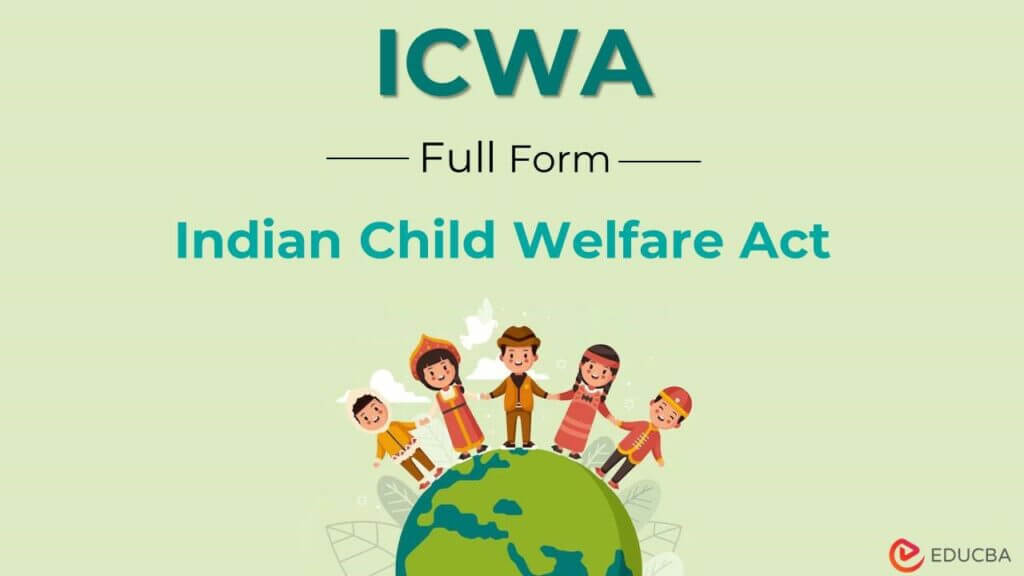Updated March 4, 2023
ICWA (Indian Child Welfare Act)
The full form of ICWA is Indian Child Welfare Act, a federal law in the United States passed in 1978. It is intended to safeguard Native American children’s best interests while promoting the stability and security of tribal families and communities. The Indian Child Welfare Act requires state courts to prioritize placing Native American children in foster care or adoption with relatives, tribal members, or other Native American families. In addition, the law requires tribes to participate in child welfare proceedings involving Native American children actively.
What is ICWA?
Knowing about the full form of ICWA is not enough; the Indian Child Welfare Act (ICWA) was legislated in response to the high rate of removal of Native American children from their homes and placement in non-Native American families that occurred during the twentieth century. The law recognizes Native American tribes’ special cultural and political status and seeks to protect their sovereignty and cultural identity. The ICWA applies to cases involving Native American children in foster care, adoption, and termination of parental rights. The law also requires states to keep records and submit annual reports on ICWA implementation.
Why is ICWA Popular?
The Indian Child Welfare Act (ICWA) is well-known because it is a significant federal law that recognizes Native American tribes’ unique cultural and political status and seeks to preserve their sovereignty and cultural identity.
- Native American child protection: The ICWA protects Native American children by prioritizing placement of these children in foster care or adoption with relatives, tribal members, or other Native American families. This ensures that Native American children’s best interests are considered, and their cultural heritage is preserved.
- Native American children who are underprivileged can explore opportunities and get stability and security. This is especially true for those belonging to the tribal families (and is a blessing in disguise to them). Apart from providing opportunities, it also helps to preserve the culture. ICWA recognizes the children’s culture and helps them connect with their heritage. It specifies working on their well-being and personality development.
- ICWA also provides unique status and rights to children who want to explore global opportunities. It makes sure to make them feel like they belong and adhere to the Native American-related laws and policies.
Creation of ICWA
Years of advocacy and activism by Native American tribes and organizations fighting to protect the rights of Native American children and families resulted in the ICWA. Later, the full form of ICWA was declared the Indian Child Welfare Act. The law recognized Native American tribes’ distinct cultural and political status and sought to protect their sovereignty and cultural identity.
The ICWA was also a reaction to the findings of a study conducted by the National Indian Child Welfare Association (NICWA), which revealed that up to 25-35% of Native American children were being removed from their homes and placed in foster care or adoptive homes outside of their communities. This removal was frequently carried out without regard for the children’s best interests or cultural and familial ties.
The Indian Child Welfare Act required state courts to prioritize placing Native American children in foster care or adoption with relatives, tribal members, or other Native American families. It also required Native American tribes to participate in all child welfare proceedings involving Native American children.
Benefits Of ICWA
The Indian Child Welfare Act (ICWA) benefits Native American children, families, and tribes in various ways.
Among the many advantages of the ICWA are the following:
- Preservation of Cultural Identity: The ICWA recognizes the importance of Native American children’s cultural identity and provides a mechanism to ensure they are not disconnected from their heritage. This promotes Native American children’s mental and emotional well-being while preserving Native American tribes’ traditions and customs.
- Native American Child Protection: The ICWA protects Native American children by prioritizing placement of these children in foster care or adoption with relatives, tribal members, or other Native American families. This ensures that Native American children’s best interests are considered, and their cultural heritage is preserved.
- Recognition of Tribal Sovereignty: The ICWA recognizes Native American tribes’ sovereignty and their right to participate in decisions affecting the welfare of Native American children. This contributes to tribal families’ and communities’ stability and security.
- Legal Precedent: The ICWA established a legal precedent for recognizing Native American tribes’ unique status and their right to participate in decisions affecting the welfare of Native American children. This has influenced other Native American-related laws and policies.
Conclusion – Full Form of ICWA
The ICWA is an important federal law that recognizes Native American tribes’ sovereignty and cultural identity while also seeking to protect the best interests of Native American children. The law provides numerous benefits to Native American children, families, and tribes, and it has established an important legal precedent in recognizing Native American tribes’ unique status.
Recommended Articles
We hope that this EDUCBA information on “Full Form of ICWA” was beneficial to you. You can view EDUCBA’s recommended articles for more information –

